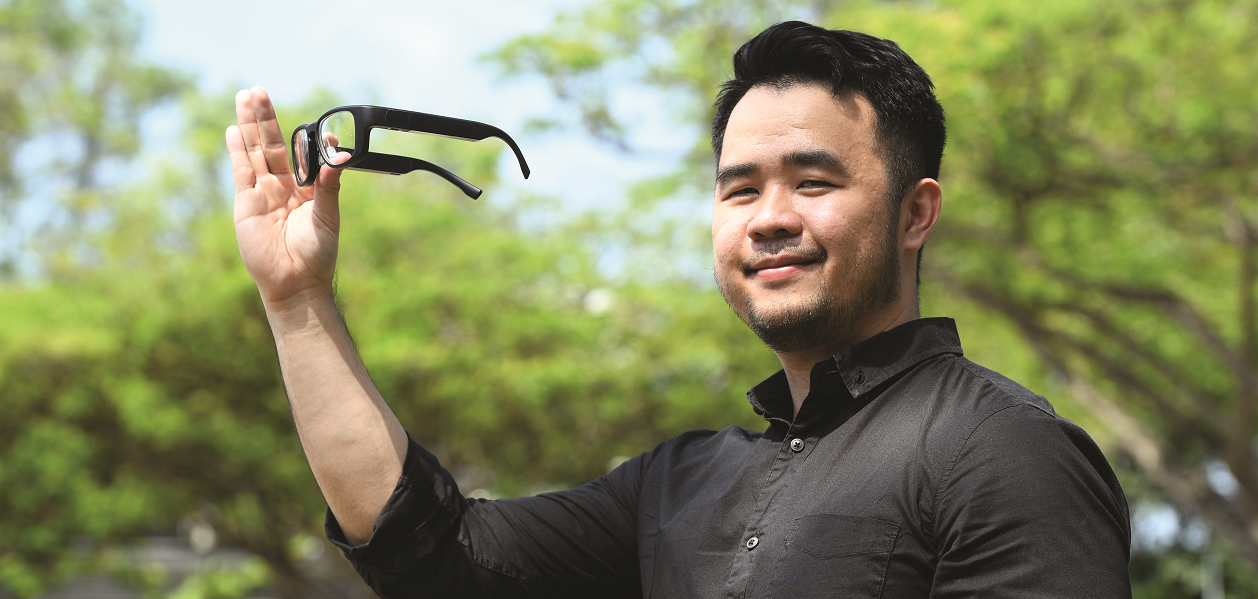Tan Jian Ming strode into TechInnovation 2018 as a man on a mission. The Co-founder of Moon Technologies and his team had been puzzling over a way to improve user experience of their latest creation – wireless augmented reality (AR) smart glasses with image recognition capabilities.
Able to deliver real-time, actionable insights, the device would allow paramedics to quickly identify patients and retrieve their medical data, thus improving timeliness and quality of the medical help provided. However, there was one snag. The camera would shake irregularly, resulting in a shaky video and motion sickness for some users. Fixing the issue was therefore crucial for good user experience.
In between browsing the booths and attending talks at TechInnovation, Tan learnt about IPHatch Day. The programme invited start-ups to develop scalable business ideas by leveraging one of the IP portfolios offered. Scrolling down the list, Panasonic’s IP caught his eye. “We found that it could be used to enhance the AR imaging system and eliminate video-induced motion sickness,” Tan explains. With venture capital funding, incubation and mentorship all up for grabs, Moon Technologies decided to participate and eventually won the competition and acquired Panasonic’s IP.
By clinching this fundamental patent, the team was able to build new technologies from it and increase their competitive advantage on the global stage. Besides providing their IP, Panasonic went one step further, surrounding them with technical support during the development process and the expertise to improve their product design.
Having Panasonic on board meant that the team had to stay on their toes. “Dealing with an investor like Panasonic requires greater attention to detail in everything we do,” says Tan.
The combination of technical and design expertise from both sides culminated in a product that is suitable for outdoor use, enables image projection via a unique lens and can even be worn by individuals with short-sightedness or astigmatism. Able to last for four hours with continuous operation, the smart glasses come with a microphone integrated with voice-activated Google Assistant. Importantly, the device is comfortable to wear, with no risk of video-induced motion sickness.
The start-up has begun clinical trials in several countries. Once these conclude, they will start manufacturing their unique brand of smart glasses. The team is also collaborating with several companies to integrate their applications with Moon Technologies’ image recognition AR platform.
Commenting on IPI’s efforts in bringing companies together, Tan says, “IPI’s focus on start-ups and evaluating technology readiness made it easier for potential clients to evaluate our technology. This opened up new pathways of collaboration.”
Having enjoyed initial success, Moon Technologies is now looking at expanding their smart glasses for use well beyond healthcare. Given the device’s usefulness for diverse purposes, the team is developing smart glasses which will infuse AR into everyday life and soon be able to support the daily digital needs of all.

